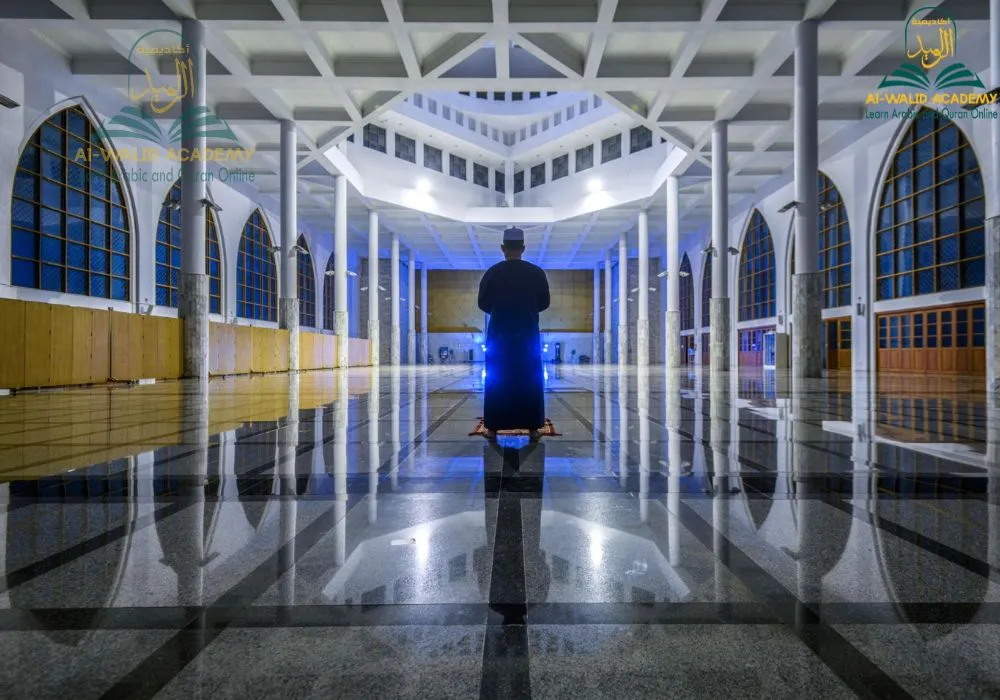Wudu, or ritual purification, is an essential part of a Muslim’s daily life. It is a spiritual and physical act that cleanses the body and prepares the mind and soul for prayer and other acts of worship. For new Muslims, or those seeking to perfect their practice, understanding how to perform Wudu correctly is a fundamental step. This guide is designed to make the process simple and clear. By following our step-by-step instructions, you will learn the correct way to perform this important ritual, ensuring your prayers are accepted and your heart is at peace.
How to Perform Wudu
Wudu is an act of purification that follows a specific sequence, starting with the intention to seek Allah’s pleasure. The ritual involves washing your hands and face, rinsing your mouth and nose, and then washing your arms up to the elbows. You then gently wipe over your head and ears with wet hands, and finally, wash your feet up to the ankles. This process of physical cleansing not only prepares a person for prayer but also serves as a moment of spiritual reflection and focus.
Discover the beauty of Islam with the New Muslim Convert Guide, your trusted companion for every step of your spiritual journey.
What is Wudu?
Before we dive into the steps of Wudu, it’s helpful to understand what it is and why it’s so important in a Muslim’s life.
Definition and Importance of Wudu
Wudu is a ritual washing performed by Muslims to purify the body before certain acts of worship, such as Salah (prayer) and reading the Quran. Derived from the Arabic word for “cleanliness,” it is a physical act of cleansing that holds deep spiritual meaning.
Wudu is a fundamental requirement and a key to approaching Allah with a clean body and a pure intention. This spiritual cleansing prepares the mind and soul for worship, helping a person to focus and connect with Allah. It is a sign of respect and a way to seek blessings before engaging in sacred acts.
When Should You Perform Wudu?
Wudu is required before certain acts of worship to ensure a state of ritual purity. The most common time to perform Wudu is before every formal prayer (Salah). It is also necessary before touching the Quran (Mushaaf) and before performing the Tawaaf (the circumambulation of the Kaaba during Hajj or Umrah).
If you perform wudu for umrah, don’t miss out this article Dua for Intention of Umrah.
Conditions That Invalidate Wudu
Your state of Wudu is broken by specific actions, which means you must perform it again before continuing with any worship that requires it. These conditions include:
-
Passing wind or answering the call of nature (urinating or defecating).
-
Deep sleep or fainting.
-
Bleeding from a wound.
-
Sexual intercourse.
-
Enema.
Step-by-Step Guide to Perform Wudu
Performing Wudu correctly involves a specific sequence of steps that are both obligatory and recommended. The following is a comprehensive guide to help you master this important ritual.
Make Intention (Niyyah) & Say Bismillah
Begin by making the intention (niyyah) in your heart to perform Wudu for the sake of Allah. This is a mental act, and you do not need to say it out loud. Then, say “Bismillah” (In the name of Allah) to seek blessings.
Wash Hands (up to wrists)
Wash your hands up to your wrists. Make sure to wash both hands three times each, rubbing between your fingers to ensure every part is cleansed.
Rinse Mouth & Cleanse Nose
Rinse your mouth by swirling water inside and then spitting it out, doing this three times. Next, take water into your nose with your right hand and blow it out with your left hand, repeating this action three times.
Wash Face
Wash your face from your forehead to your chin and from ear to ear, ensuring all areas are covered. Wash your face three times.
Wash Arms Up to Elbows
Wash your right arm from your fingertips all the way to the elbow, ensuring the elbow is included in the washing. Repeat this three times. Then, do the same for your left arm, washing it three times.
Wipe Head (Masah) & Ears
Wet your hands and gently wipe over the top of your head, starting from the front and moving your hands to the back of your neck. Then, wipe your ears, using your index fingers to clean the inside and your thumbs for the back of the ears. This is done just once.
Wash Feet (up to ankles)
Wash your right foot, including the ankle, three times. Make sure to rub between the toes. Then, repeat this for your left foot, washing it three times.
Sunnah Enhancements (Recommended Practices)
After you have mastered the obligatory steps of Wudu, you can enhance your practice by including these recommended actions, which were part of the Prophet Muhammad’s (PBUH) way. While not essential for the validity of Wudu, they add to its spiritual reward.
Repeat Actions Thrice
It is a Sunnah to repeat the washing of your hands, mouth, nose, face, and arms three times. This ensures a more thorough cleansing and follows the established practice of the Prophet.
Interlacing Fingers and Between Toes
When washing your hands and feet, take care to interlace your fingers and rub between your toes with your pinky finger. This ensures that every part of your skin is reached by the water.
Rubbing Beard (for Men)
For men with a beard, it is a Sunnah to run water through the beard with your fingers while you are washing your face. This ensures the water reaches the skin beneath the hair.
Beginner Mistakes & Quick Tips
For new learners, mastering Wudu can take some practice. These tips are designed to help you avoid common errors and ensure your Wudu is performed correctly and with ease.
Common Errors to Avoid
-
Wasting water: Use a moderate amount of water. Wasting water is discouraged in Islam, so be mindful of the flow and amount.
-
Missing a required step: Ensure you don’t forget any of the obligatory steps, especially the washing of your face and feet.
-
Washing in the wrong order: The sequence of washing is essential. Always follow the steps in the correct order to ensure your Wudu is valid.
Maintaining Order and Flow
Try to perform the steps of Wudu in their correct order without taking long pauses between them. The Prophet Muhammad (PBUH) performed Wudu in a smooth, continuous flow. This practice, known as muwalat, maintains the integrity of the ritual.
After Wudu: Supplications & Spiritual Focus
Once you have completed Wudu, you are in a state of ritual purity. This is the perfect time to enhance your spiritual connection and prepare for the next step in your worship.
Dua After Completing Wudu
After performing Wudu, it is highly recommended to recite a supplication (dua). This is an act of gratitude and a way to seek Allah’s blessings. The most common dua is:
-
”Ash-hadu an la ilaha illallah, wahdahu la shareeka lah, wa ash-hadu anna Muhammadan ‘abduhu wa rasuluh.”
(I bear witness that there is no god but Allah, alone without a partner, and I bear witness that Muhammad is His servant and messenger.)
What Comes Next? (Prayer / Quran)
With your Wudu complete, you are now spiritually and physically purified. You are ready to perform Salah (prayer) or to touch and read the Quran (Mushaaf). Wudu is the key that opens the door to these acts of worship.
After wudu, Learn the words of Islamic prayer in Arabic and connect deeply with your faith one beautiful phrase at a time.
Wudu for New Muslims: Practical Resources
For new Muslims or those who want to perfect their practice, having access to the right resources can make all the difference. Al Walid Academy is dedicated to providing clear, accessible, and supportive learning materials.
Audio/Video Demonstrations
To help you perfect your practice, Al Walid Academy offers a range of audio and video demonstrations. These resources provide clear, visual guidance for each step of Wudu, making it easier for new Muslims and children to learn the correct movements and sequence with confidence.
While wudu may seem like a simple ritual, its spiritual depth and legal precision are rooted in centuries of Islamic scholarship. If you’re eager to explore the rulings, wisdom, and nuances behind purification acts like wudu, enrolling in a structured Fiqh: Islamic Jurisprudence course is a powerful next step.
Join Our Wudu & Quran Course
For a truly comprehensive and personalized learning experience, we invite you to join our Wudu & Quran Course. Our qualified instructors provide one-on-one guidance, helping you master the fundamentals of prayer and Quran recitation. This course is designed to build your confidence and deepen your spiritual connection, giving you the tools you need for a lifetime of worship.
Learn now more about our Quran Recitation Course and start your journey.
Master Wudu and Beyond with Al Walid Academy
Are you tired of feeling uncertain about your Wudu? Do you wish you could perform your daily prayers with complete peace of mind? At Al Walid Academy, we believe that a strong foundation in worship starts with a perfect ablution. Our specialized Wudu & Quran course is designed to take you from doubt to certainty, teaching you not just the steps but the spiritual depth behind each action.
You’ll receive personalized guidance from our expert instructors, ensuring you perfect every detail of your Wudu at your own pace. This isn’t just a lesson; it’s a journey to a deeper spiritual connection.
Ready to transform your practice? Start your journey to confident worship today. Visit our website to enroll in our Wudu & Quran course and experience the peace that comes with certainty.
FAQS
Here are some of the most common questions about Wudu to help you in your practice.
Is it permissible to perform Wudu in the same place where I wash my body?
Yes, it is permissible to perform Wudu in a bathroom. The most important thing is to maintain a state of respect and to remember the spiritual intention of your Wudu, regardless of your physical surroundings.
What if I forget a step during Wudu?
If you remember a forgotten step during your Wudu, you must return and perform that step, along with all the subsequent steps that follow it. If you only remember after completing Wudu, you need to perform the entire Wudu again.
Do I need to perform Wudu for every single prayer?
Not necessarily. As long as your state of Wudu is not broken, you can pray multiple prayers with a single Wudu. However, it is a highly recommended practice to perform Wudu before each prayer to renew your spiritual focus.
Why is Wudu important before Salah?
It prepares a Muslim for prayer by ensuring cleanliness and fulfilling a key condition of Salah as commanded in the Qur’an.
What breaks Wudu?
Things that nullify Wudu include using the restroom, passing wind, deep sleep, loss of consciousness, and other forms of impurity.
Can Wudu be performed without water?
Yes, if water is not available or harmful, Muslims can perform Tayammum (dry ablution) using clean earth as taught in the Qur’an and Sunnah.
Do you need to say anything before starting Wudu?
It is Sunnah to say “Bismillah” (In the name of Allah) before starting, though Wudu is still valid if forgotten.
How long does Wudu last?
Wudu remains valid until it is broken by one of the nullifiers. There is no set time limit; it lasts as long as none of the invalidators occur.
Is Wudu required for every prayer?
If a person’s Wudu has not been nullified, they may pray multiple Salahs with the same Wudu. A new Wudu is only needed after invalidation.





